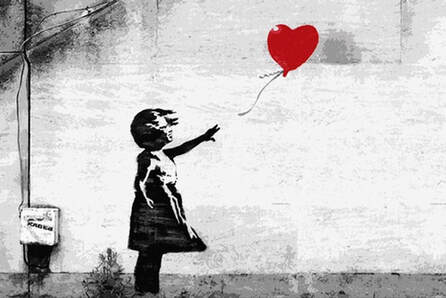|
‘The medical model doesn’t perfectly fit mental health – and it confuses a lot of people.’ (Emma McAdam) Is mental health all in the mind? I don’t think so, but I do believe we’re sometimes getting a bit lost in how we think about and approach it. Take Sam. He’s 27, talented and full of potential. Yet Sam often finds himself these days feeling jittery and irritable and struggling to concentrate. His partner finds his mood swings and erratic behaviour increasingly difficult to cope with. Feeling concerned, she took him recently to see his GP who referred him for a mental health assessment. The assessor asked Sam briefly over the phone to describe his symptoms, diagnosed his state as ADHD and recommended prescription medication to resolve it. Now step back with me for a moment. Consider human factors that lead to a sense of mental, emotional and physical well-being, and which can influence a corresponding felt-experience of unwellness if persistently absent in our lives. Things such as: safety and security; sense of purpose; engaging in positive and meaningful human relationships; ability and opportunity to exercise free choices; feeling of making a valued contribution in the world, especially for the benefit of others; achieving something worthwhile; fresh air; change of scenery; prayer, intimacy; sex; physical exercise; personal hygiene; laughter; diet; sleep; rest. Sam stays mostly indoors; sleeps until mid-afternoon; rarely washes; spends all night, every night, playing intense computer games; eats junk food; lives on high-caffeine energy drinks. He did have a job for 2 weeks at a call centre but resigned because he felt unhappy dealing with customer complaints. He has now been unemployed for some time and lives on state benefits. From a psychological and relational perspective, we could view ‘feeling jittery and irritable and struggling to concentrate’ as natural outcomes of Sam’s lifestyle choices, not as a pathological dysfunction requiring medication. Social prescribing could be a healthier response.
20 Comments
‘Language is power, life and the instrument of culture, the instrument of domination and liberation.’ (Angela Carter) In her challenging and ground-reclaiming polemic, Drop the Disorder, psychotherapist Jo Watson comments that, “The counselling profession (and in that I include psychotherapy) is helping to endorse a medical understanding of emotional distress that is based on ‘What is wrong with you?’ and not ‘What has happened to you?’” I heard a similar-but-different reframing of the issue from Paul Kelly at a Leading & Influencing Trauma-Informed Change workshop today, advocating a shift from “What’s the matter with you?” to “What matters to you?” The striking feature of both these examples is the profound impact of language on reflecting and reinforcing the ways in which people and situations are construed and responded to. In Jo Watson’s case, the first framing regards an issue as some form of dysfunction in an individual. The alternative looks beyond the individual to explore wider potential influencing factors. As radical social reformer Martin Luther King noticed, what appears at first glance as dysfunctional behaviour is sometimes a normal response to dysfunctional circumstances. In Paul Kelly’s case, similarly, the first framing locates a problem within an individual. It’s a form of pathologizing, implying that a person’s behaviour is a consequence of some internal defect. The alternative invites an exploration of the person’s underlying values and motivations. Behaviour that appears dysfunctional could be a natural response to healthy, unmet hopes and needs in a dysfunctional environment. Kenneth Gergen offers a stark warning here, pointing to risks of a medical model applied uncritically: ‘a diseasing of the population.’ ‘People get tired of asking you what's wrong and you've run out of nothings to tell them. You've tried and they've tried, but the words just turn to ashes every time they try to leave your mouth. They start as fire in the pit of your stomach but come out in a puff of smoke. You are not you anymore. And you don't know how to fix this. The worst part is...you don't even know how to try.’ (Nikitta Gill) Losing my voice was a painful experience. It started with frequent sore throats and laryngitis but steadily got worse. After a while, I had to suck on throat lozenges to be able to speak at all. My voice became very weak and, if I had to project it in a group or tried to sing, it felt afterwards like I’d been garrotted. Feeling increasingly concerned, I saw my doctor who referred me to ear-nose-throat specialists. They ruled out throat cancer and vocal cord nodules yet still couldn’t work out what was causing the problem. I lost count of how many cameras they ran up my nose and down my throat. As time went on with no improvement, they referred me to speech therapy. By now I was having to carry a sign at work to say, ‘Sorry, I’ve lost my voice’ and a clipboard to write down what I wanted to say. (It was amusing to see how many people wrote down their responses for me to read too. I had after all lost my voice, not my hearing.) The speech therapists were puzzled by the symptoms and tried various techniques without success. For 2 years, I virtually couldn’t speak at all. It took another 10 years of cameras and speech therapy before they finally worked out the underlying problem. Bizarrely, I had somehow learned to speak as a child without using the complex muscles around the larynx correctly. It was, in effect, as if I had found a way to imitate normal speech. That was OK to a point, until my work demanded more strenuous use of my voice. That’s when it became strained and failed. Apart from the intense physical discomfort, the social and psychological effects were profound. Over the years, I got tired of explaining my predicament. I became far quieter than usual and people related to me as if I was incredibly introverted, or simply didn’t relate to me at all. It became so very isolating. Not only did I lose my physical voice. I felt steadily as if I was losing my personal identity, presence and influence in social situations too. I felt helpless to resolve it and had no idea if it could or would ever be resolved. Salvation came in the form of a new friend, David, whom I met in a church and who had suffered from debilitating hearing loss for many years. When he described the social and psychological effects it had had on his life, for the first time I didn’t feel alone. It demonstrated the power of empathy and its place in healing. Now I could learn to speak. That was a scary moment. My Dad had developed a dangerous arrhythmia and drastic action was needed to save his life. Paradoxically, the solution lay in stopping his heart. After what felt like a breathtakingly-long pause, the cardiologist restarted his heart to re-establish a healthy rhythm. Thank God it worked and we could all breathe again. More recently, my laptop got into a mess. It was operating so slowly and experiencing so many glitches that I wondered if I needed to replace it. An IT trainer friend, Rob, had a look and discovered that, for some time, I had been closing the lid to power it down, rather than turning it off-and-on again to reboot it. He restarted it and then it worked. A teacher friend, Kathrin, commented that people professionals who deal with challenging relationships, complex issues and wicked problems can get into a tangle too. Over time, it can feel harder to see the wood for the trees, a bit like having pressed on day-after-day without sleep. If you're feeling stressed or burned out, you need a restart. Curious to discover how I can help? Get in touch! 'Diagnosis determines intervention.'
There’s a very big difference between ‘What’s wrong with you?’ and ‘What’s happened to you?’ Jo Watson’s book, Drop the Disorder (2019) is a timely and courageous personal-professional challenge to the creeping influence of the biomedical model into social-psychological therapeutic thinking and practice. In her aptly titled article in the book, ‘There’s an intruder in our house!’, she reflects with a pained air of near-despair on this gradual, alarming and depressing diagnostic drift: ‘It wasn’t always like this. I joined a profession that held a shared belief about the nature of human emotional distress. We understood that the many forms of human suffering we witnessed – ranging from feeling low and suicidal to self-injury, hearing voices, overwhelming anxiety and dissociative experiences – were responses and reactions to what had happened in people’s lives and, in many cases, the resourceful and creative coping strategies they had developed to survive. We clearly and consistently made links between emotional distress and causal factors like poverty, racism and abuse. There was a deep, collective ‘knowing’ that social circumstances were linked directly to human suffering and this acknowledgement translated into a connection with the political arena. Yet, as I write, this work has been consumed by a biomedical monster that has crept into our house and made itself very much at home. In fact, I don’t feel this is my home anymore.’ Jo is challenging a fundamental risk of the biomedical therapeutic model, that it locates a perceived problem in an individual, irrespective of a broader context. In doing so, Jo echoes disaster management expert Marcus Oxley’s insight (in a different arena) that, if we see a pattern of symptoms in people attending an Accident & Emergency unit, it may well reveal something implicitly about conditions in that context. It’s always about the person, but it’s rarely only about the person. 'The reality is that you will grieve forever. You will not 'get over' the loss of a loved one; you will learn to live with it.' (Kubler-Ross & Kessler) At 15, I was fatally wounded. At 18, I died. That’s how it felt and, at times, it still feels now. There are some scars that never heal. A trauma of unwelcomed loss is being forced, harshly, to let go of an imagined future, a hoped-for dream. This tearing experience can leave our hearts, our bodies, bleeding. I felt betrayed and shattered and spent day after day, year after year, pleading with God to take my life. I slid into a heavy, dark dysthemia. Nothing could bring healing, happiness or hope. It's fertile ground for addiction, to search for anything that will make us feel alive, provide even momentary relief. We may immerse ourselves in whatever distracts and enables us to avoid having to face again, all too wearily, those severe memories and tortured feelings. My own torment was that searing-painful images would surface over and over in my dreams, as if trying to reconcile the suffering at some deep subconscious level, yet leave me waking the next day in suicidal mood. I wish there was a simple answer, a miracle cure. I live in a culture that holds out delusional promises and expectations of a pain-free, pleasure-filled possibility of a life. I live in a world where hurt and damaged people, more and more, seek solace and escape in drugs or other diversions. I find my spiritual hope in Jesus who (to me surprisingly, yet in a strange way reassuringly) carries the scars of crucifixion after his resurrection. Whatever I may go through now, this will not end in death. Over the years I have learned, and am still learning, how to live with my own scars rather than to attempt to bury, hide or erase them. I’m still, at times, ambushed by grief. It takes me by surprise and leaves me temporarily reeling. I’ve learned to be thankful and, gradually, to allow people and relationships to drift away rather than to cling so hard. I’ve learned to discern how pain triggered from the past can reveal someone or something important that I’m not noticing here and now. How do you deal with your scars? How do you help others to do so too? (Nick is a change leadership consultant and trainer for trauma-informed practice agency, Rock Pool) ‘I was so focused on what I had lost, that I lost sight of what I had found.’ (Jerry Orbos) Orbos, a priest, recounted a story of when, as a small child living in a very poor village, he attended a fiesta. It was a special, exciting party and he was thrilled to be given a balloon. Some moments later, he was given an ice cream too. He could hardly believe it. On taking the ice cream, however, he accidentally let go of the balloon which floated away out of reach. Looking up helplessly, Jerry felt completely distraught. His mother, noticing his distress, whispered, ‘Jerry – look at your ice cream’. A loss that impacts deeply can leave us feeling hurt, mesmerised, transfixed and paralysed. We may struggle to breathe, as if caught in a trance state and unable – or unwilling – to break free. We may notice this when a person loses, say, a relationship, job or home that really matters to them. ‘What do you need?’ offers valuable empathy and support. ‘What are you not-noticing?’ can help break the gaze; enabling someone to see people, relationships and resources that lay hidden in plain sight. How do you help people to let go of what is lost? How do you help them to see what they can’t see? ‘My life has been filled with terrible misfortunes; most of which never happened.’ (Michel de Montaigne) Imagination can be a rich blessing and a painful curse. On the one hand, it can enable the most amazing creativity and innovation; on the other, it can cause the most terrible suffering and pain. Learning to handle and harness the power of the imagination can be a very valuable skill. Yet it can feel like trying to tame a wild horse. We sense and feel its power and potential but can never quite control it. Sometimes it can inspire or entertain us; at other times, it can terrify or overwhelm us. I remember an advert for an organisation that supports people with a frightening, degenerative, physical disease. It said quite simply, yet so poignantly, ‘It’s what goes through your mind that’s the worst’. I remember, too, a colleague who comments that, ‘The past exists only in memory; the future exists only in imagination.’ Imagination creates the possibility to experience as-if reality, now. So, if that means experiencing our happiest dreams – good; if our worst nightmares – not good. An opportunity and a challenge is that the brain doesn’t distinguish sharply between actual reality and as-if reality. This means that, if we imagine something vividly enough, it can be as if, mentally, emotionally and physically, we go through that experience for real. That's great for fields like, say, Appreciative Inquiry that capitalise on positive imagination to create a better and brighter future; not great for professionals who experience, say, vicarious trauma or secondary traumatic stress. How do you draw on the immense power of imagination to achieve positive change? How do you avoid or address its potentially damaging effects? You may have heard the expression, ‘To hit rock bottom.’ It’s often used in relation to reaching the lowest possible place in life, a place that is in effect devoid of all resources and hope. To hit rock bottom suggests a falling experience – having fallen from a better situation…to a deteriorating situation…to the hardest of all possible situations where it really couldn’t get any worse. Some argue that when things get that bad, they may need to be so before we find ourselves motivated enough to make the necessary, fundamental – even drastic – changes needed to resolve or improve them.
There are some parallels with use of extreme, evocative images, e.g. that of a ‘burning platform’, in change leadership. This fire metaphor conveys that the status quo is under threat and that we, by extension, are under threat too unless we wake up, smell the proverbial coffee and…not sure what comes next…presumably drink it – or at least use it to douse the flames?! It’s like, ‘Change or die’. It suggests that, at times, we need to compel ourselves or others urgently by painting dramatic, real or imagined (and sometimes a bit of both) scenarios that radically incentivise or force us to change. But do we really need to hit rock bottom or to face the wall first? Are there ways to galvanise sustainable change without prerequisite anxiety or near-despair? I believe we can learn here from the therapeutic arena. Some examples: in working with people at risk of free-fall, we can ‘raise the bottom’ or help ‘create firm footholds’ (e.g. support people early to face and deal with real yet less-devastating crises); use ‘motivational interview techniques’ that increase people’s intrinsic desire to change; use spiritual-existential coaching to help people build deeper and stronger foundations. As leader or coach, have you ever hit rock bottom, felt yourself falling or worked with people who have? If so, who or what made a difference? Have you tried reasoning with someone when they’re feeling intensely emotional? It’s hard to think clearly, think straight, when we’re stressed. Some brain research says it’s almost impossible. When we’re stressed, we flick out of reasoning mode into fight-fight-freeze mode. The brain gets flooded with chemicals that are intended to enable us to survive an emergency, a crisis. Trying to hold a rational conversation with someone in that state can be like pouring fuel onto a chemical fire.
Cognitive behavioural psychology points us helpfully towards some signs that a person may be in that kind of emotional place. For example, they may be speaking in very black-white/either-or terms, unable to see nuances or alternatives in a situation. They may be assuming intentions in others or predicting outcomes with unfounded certainty – as if they know the future for sure. Physically, they may be struggling to rest or sleep, missing meals or avoiding normal patterns of social contact. The vivid image that comes to mind for me is that of a lot of dust being kicked up into the air. Until the dust settles, we are unable to see clearly. This is a reason why leaders who try to lead change and transition as a purely rational-technical process often encounter greatest resistance or other attitudes or behaviours they consider irrational. It’s also a reason why coaching and training may fail if the coach or trainer doesn’t take the client’s or group’s emotional state into account. So what, if anything, can we do to address this? We can offer time and space for people to feel and process their emotions. ‘How are you feeling as we talk about this?’ As the person or group talks, the dust often settles enough for them to start to make sense of their experience and to see and discuss the beginnings of a way forward. We can also offer empathy and support. ‘What do you need?’ It values and respects the person or group and shows care, responsiveness – and standing-with. |
Nick WrightI'm a psychological coach, trainer and OD consultant. Curious to discover how can I help you? Get in touch! Like what you read? Simply enter your email address below to receive regular blog updates!
|











 RSS Feed
RSS Feed